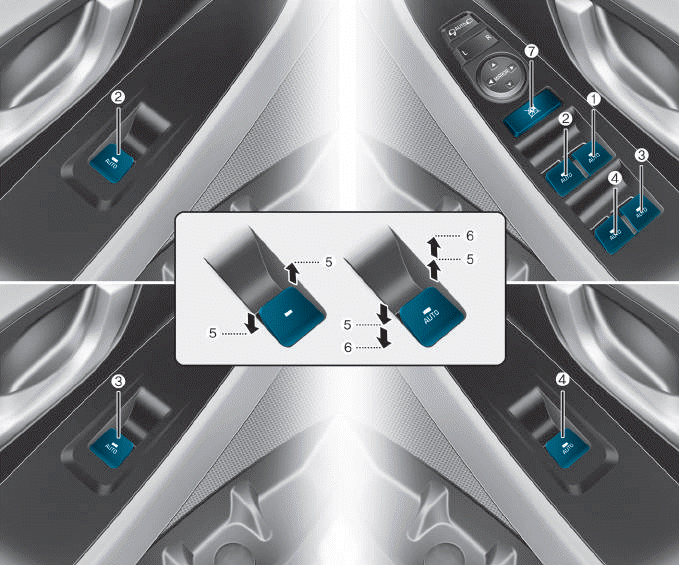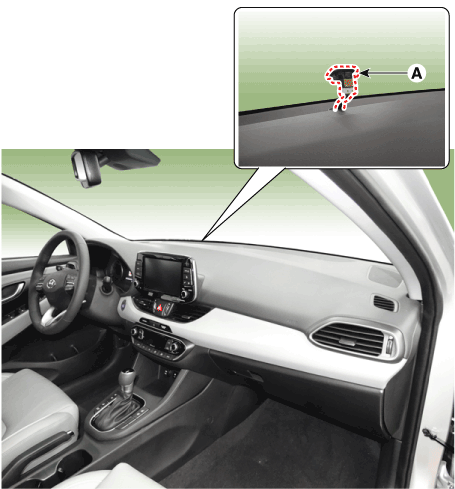Hyundai i-30: Air Conditioning System / Photo Sensor
Description and operation
| Description |
The photo sensor is located at the center of the defrost nozzles.
The photo sensor contains a photovoltaic (sensitive to sunlight) diode. The
solar radiation received by its light receiving portion, generates an electromotive
force in proportion to the amount of radiation received which is transferred
to the automatic temperature control module so that the solar radiation compensation
will be performed.
Repair procedures
| Inspection |
| 1. |
Turn the ignition switch ON.
|
| 2. |
Connect the GDS.
|
| 3. |
Emit intensive light toward the photo sensor using a lamp, and check
the output voltage change.
|
| 4. |
The voltage will rise with higher intensive light and reduce with lower
intensive light.
|
| Replacement |
| 1. |
Disconnect the negative (-) battery terminal.
|
| 2. |
With a flat-head screwdriver, remove the photo sensor (A) from the center
of the defrost nozzle after disconnecting the connector (B).
|
| 3. |
To install, reverse the removal procedure.
|
 In-car Sensor
In-car Sensor
Description and operation
Description
The In-car air temperature sensor is built in the heater & A/C control unit.
The sensor contains a thermistor which measures the temperature of the inside...
 Ambient Temperature Sensor
Ambient Temperature Sensor
Description and operation
Description
The ambient temperature sensor is located at the front of the condenser and
detects ambient air temperature...
Other information:
Hyundai i30 (PD) 2018-2025 Owner's Manual: Seat belt restraint system
Lap/shoulder belt To fasten your seat belt: Pull it out of the retractor and insert the metal tab (1) into the buckle (2). There will be an audible "click" when the tab locks into the buckle. You should place the lap belt (1) portion across your hips and the shoulder belt (2) portion across your chest...
Hyundai i30 (PD) 2018-2025 Service Manual: Accelerator Position Sensor (APS)
Description and operation Description Accelerator Position Sensor (APS) is installed on the accelerator pedal module and detects the rotation angle of the accelerator pedal. The APS is one of the most important sensors in engine control system, so it consists of the two sensors which adapt individual sensor power and ground line...
Categories
- Manuals Home
- 3rd Generation i30 Owners Manual
- 3rd Generation i30 Service Manual
- Brake/clutch fluid
- EPB malfunction indicator
- Theft-alarm system
- New on site
- Most important about car
Power windows

(1) Driver’s door power window
switch
(2) Front passenger’s door power
window switch
(3) Rear door (right) power window
switch
(4) Rear door (left) power window
switch
(5) Window opening and closing
(6) Automatic power window
(7) Power window lock switch
Copyright © 2025 www.hi30.net


